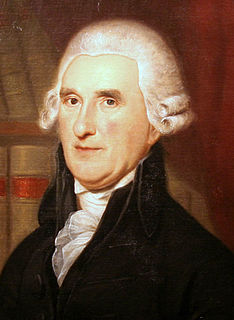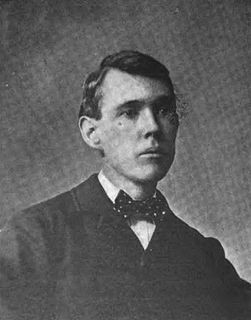Related Research Articles

Thomas McKean was an American lawyer and politician from New Castle, in New Castle County, Delaware and Philadelphia. During the American Revolution he was a delegate to the Continental Congress where he signed the United States Declaration of Independence and the Articles of Confederation. McKean served as a President of Congress. He was at various times a member of the Federalist and Democratic-Republican parties. McKean served as President of Delaware, Chief Justice of Pennsylvania, and Governor of Pennsylvania. He is also known for holding copious public positions.

The United States Declaration of Independence is the pronouncement adopted by the Second Continental Congress meeting at the Pennsylvania State House in Philadelphia, Pennsylvania, on July 4, 1776. The Declaration explained why the Thirteen Colonies at war with the Kingdom of Great Britain regarded themselves as thirteen independent sovereign states, no longer under British rule. With the Declaration, these new states took a collective first step toward forming the United States of America. The declaration was signed by representatives from New Hampshire, Massachusetts Bay, Rhode Island, Connecticut, New York, New Jersey, Pennsylvania, Maryland, Delaware, Virginia, North Carolina, South Carolina, and Georgia.

The Allied occupation of Japan at the end of World War II was led by General Douglas MacArthur, the Supreme Commander of the Allied Powers, with support from the British Commonwealth. Unlike in the occupation of Germany, the Soviet Union was allowed little to no influence over Japan. This foreign presence marks the only time in Japan's history that it has been occupied by a foreign power. At MacArthur's insistence, Emperor Hirohito remained on the imperial throne. The wartime cabinet was replaced with a cabinet acceptable to the Allies and committed to implementing the terms of the Potsdam Declaration, which among other things called for the country to become a parliamentary democracy. Under MacArthur's guidance, the Japanese government introduced sweeping social reforms and implemented economic reforms that recalled American "New Deal" priorities of the 1930s under President Roosevelt. The Japanese constitution was comprehensively overhauled and the Emperor's theoretically-vast powers, which for many centuries had been constrained by conventions that had evolved over time, became strictly limited by law. The occupation, codenamed Operation Blacklist, was ended by the San Francisco Peace Treaty, signed on September 8, 1951, and effective from April 28, 1952, after which Japan's sovereignty – with the exception, until 1972, of the Ryukyu Islands – was fully restored.

The Middle Colonies were a subset of the thirteen colonies in British America, located between the New England Colonies and the Southern Colonies. Along with the Chesapeake Colonies, this area now roughly makes up the Mid-Atlantic states.

Independence Hall is the building where both the United States Declaration of Independence and the United States Constitution were debated and adopted. It is now the centerpiece of the Independence National Historical Park in Philadelphia, Pennsylvania.

The Pennsylvania Constitution of 1776 was the state's first constitution following their declaration of independence and has been described as the most democratic in America; although it notably based rights in "men" not in "persons," as contemporaneous constitutions did in neighboring areas such as New Jersey, and as the 1689 English Bill of Rights and 1787 U.S. Constitution and 1791 U.S. Bill of Rights did. It was drafted by Robert Whitehill, Timothy Matlack, Dr. Thomas Young, George Bryan, James Cannon, and Benjamin Franklin. Pennsylvania's innovative and highly democratic government structure, featuring a unicameral legislature and collective executive, may have influenced the later French Republic's formation under the French Constitution of 1793.

The Province of Pennsylvania, also known as the Pennsylvania Colony, was founded in English North America by William Penn on March 4, 1681 as dictated in a royal charter granted by King Charles II. The name Pennsylvania, which translates roughly as "Penn's Woods", was created by combining the Penn surname with the Latin word sylvania, meaning "forest land". The Province of Pennsylvania was one of the two major restoration colonies, the other being the Province of Carolina. The proprietary colony's charter remained in the hands of the Penn family until the American Revolution, when the Commonwealth of Pennsylvania was created and became one of the original thirteen states. "The lower counties on Delaware", a separate colony within the province, would breakaway during the American Revolution as "the Delaware State" and also be one of the original thirteen states.

The history of Pennsylvania begins in 1681 when William Penn received a royal deed from King Charles II of England, although human activity in the region precedes that date. The area was home to the Lenape, Susquehannock, Iroquois, Erie, Shawnee, Arandiqiouia, and other American Indian tribes. Most of these tribes were driven off or reduced to remnants as a result of diseases, such as smallpox, that swept through long before any permanent colonists arrived.
Holt McDougal is an American publishing company, a division of Houghton Mifflin Harcourt, that specializes in textbooks for use in High Schools.
The history of Delaware as a political entity dates back to the early colonization of North America by European-American settlers. It is made up of three counties established since 1638, before the time of William Penn. Each had its own settlement history. Their early inhabitants tended to identify more closely with the county than the colony or state. Large parts of southern and western Delaware were thought to have been in Maryland until 1767. All of the state has existed in the wide economic and political circle of Philadelphia.
Cecile Hulse Matschat was an American geographer and botanist, known best as the author of books on gardens, gardening and the Okefenokee Swamp.
Farrar & Rinehart (1929–1946) was a United States book publishing company founded in New York. Farrar & Rinehart enjoyed success with both nonfiction and novels, notably, the landmark Rivers of America Series and the first ten books in the Nero Wolfe corpus of Rex Stout. In 1943 the company was recognized with the first Carey-Thomas Award for creative publishing presented by Publishers Weekly.
Clyde Brion Davis was an American author and freelance journalist active from the mid-1920s until his death. He is best known for his novels The Anointed and The Great American Novel, though he wrote more than 15 books.
Johan Thorsten Sellin was a Swedish American sociologist at the University of Pennsylvania, a penologist and one of the pioneers of scientific criminology.
Mounira Maya Charrad is a Franco-Tunisian sociologist who serves as associate professor of sociology at the University of Texas at Austin.

Heinz Warneke American sculptor, best remembered as an animalier. His "role in the direct carving movement assured him a place in the annals of Twentieth Century American sculpture." In 1935 Heinz received the Widener Gold Medal for his sculpture Wild Boars.
The following is a timeline of the history of the city of Philadelphia, Pennsylvania, USA.

John Thomas McIntyre was an American novelist of mystery and crime fiction.